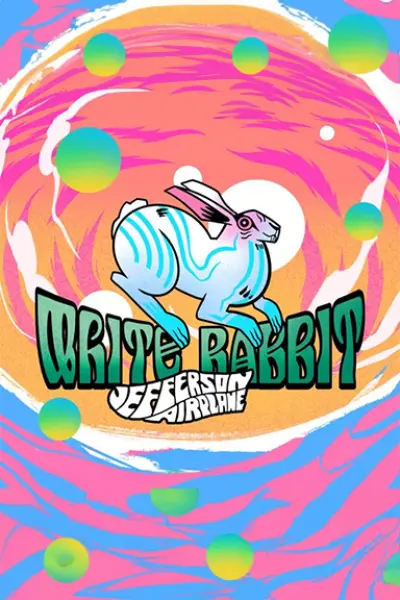
Jefferson Airplane's "White Rabbit" stands as one of the most iconic songs of the 1960s psychedelic rock era, weaving a tapestry of sound and lyrics that draw heavily from Lewis Carroll's "Alice's Adventures in Wonderland." This song is much more than a mere retelling of a children's story; it's a metaphor-laden journey through a world of perception and reality, challenging the norms of its time.
The song begins with a reference to Alice when Grace Slick sings, "One pill makes you larger, and one pill makes you small." This line directly alludes to the part of Carroll's story where Alice finds herself in a room with a bottle labeled “DRINK ME” and a cake labeled “EAT ME,” which cause her to shrink and grow, respectively. This imagery is a powerful metaphor for the mind-expanding experiences of the 1960s, particularly in relation to psychedelic drugs like LSD, which were prominent in the counterculture movement.
As the song progresses, Slick's haunting vocals guide the listener through a series of surreal scenes, much like Alice's journey through Wonderland. The mention of the "White Knight talking backwards" and the "Red Queen's off with her head" are direct references to characters in Carroll's sequel, "Through the Looking-Glass." These references are not just whimsical; they serve as symbols for the chaotic, often nonsensical nature of societal and political norms of the era.
"White Rabbit" also touches on themes of childhood and the loss of innocence. The line, “And if you go chasing rabbits, and you know you're going to fall,” speaks to the idea of pursuing unknown paths and the inevitability of losing one's innocence in the process. This theme mirrors Alice's own journey of exploration and self-discovery in Wonderland, where she confronts bizarre and often contradictory experiences.
Furthermore, Jefferson Airplane uses the song to critique the hypocrisy of adult society. The line, “When the men on the chessboard get up and tell you where to go,” highlights how young people in the 60s felt directed and controlled by the older generation, a sentiment that was a significant part of the cultural revolution of that era. This is juxtaposed with the advice Alice receives from characters in Wonderland, who often provide nonsensical or misleading guidance.
The culmination of the song in the crescendo, "Feed your head," is a call to intellectual and spiritual awakening. It's an urging to question the status quo and to expand one's consciousness, much like Alice does throughout her adventures. This line encapsulates the essence of the psychedelic experience and the broader counterculture movement, which encouraged questioning authority and exploring new realms of thought.
In essence, "White Rabbit" is a masterful intertwining of literary allusion and social commentary. Jefferson Airplane skillfully used Carroll's story as a framework to explore themes of exploration, questioning authority, and the psychedelic experience. The song remains a timeless piece, not only as a hallmark of its era but also as a reflection of the enduring power of music to challenge and inspire.

